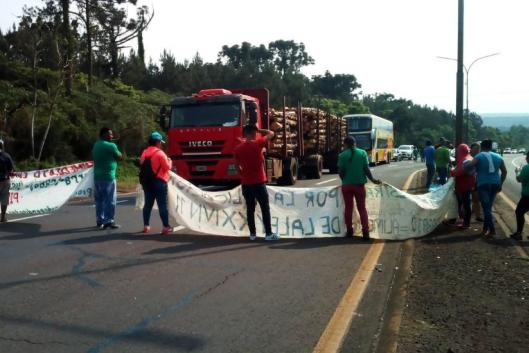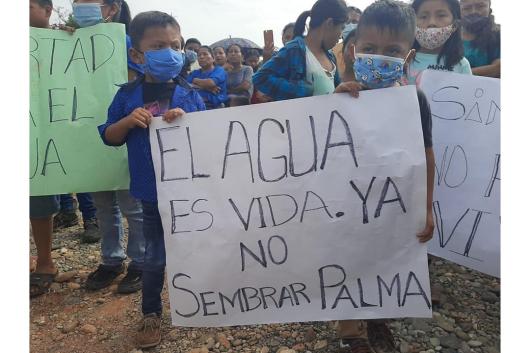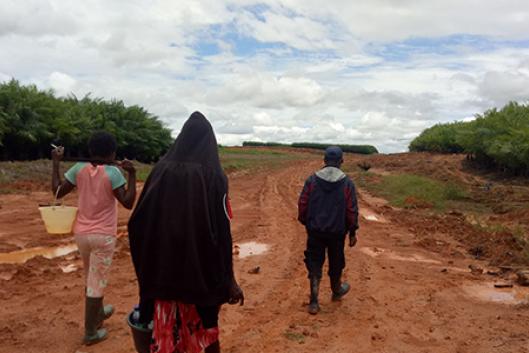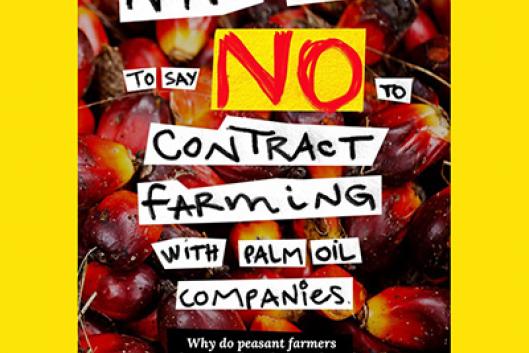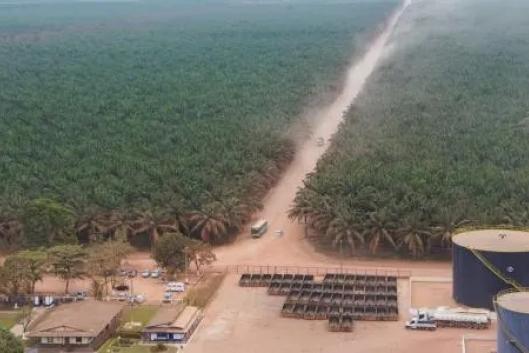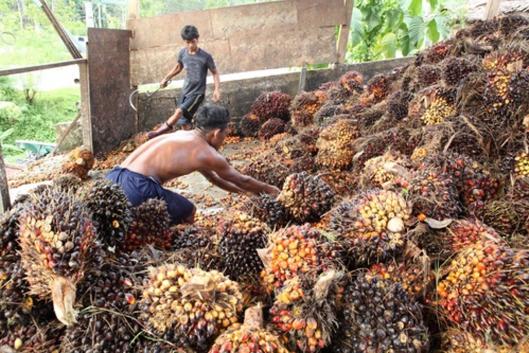The International Day of Struggle against Monoculture Plantations, September 21st recognizes the courage and strength behind the resistance processes against industrial plantations.
Bulletin 257 – July/August 2021
Resistance in the face of multiple tactics to expand monocultures
The articles in this Bulletin are written by the following organizations and individuals:
Social Intercultural Movement of the People of Ixcán, Guatemala; Witness Radio, Uganda; an activist from Sierra Leona and member of the Informal Alliance Against Industrial Oil Palm Plantations in West and Central Africa; Yayasan Pusaka Bentala Rakyat, Indonesia; a researcher from Brazil; and members of the WRM international secretariat in close collaboration with several allies in different countries.
WRM Bulletin
257
July/August 2021
OUR VIEWPOINT
RESISTANCE IN THE FACE OF MULTIPLE TACTICS TO EXPAND MONOCULTURES
-
27 September 2021The Palmas del Ixcán company has used multiple tactics to grab land, as well as a deceptive RSPO certification process and the use of “independent producers.” Despite criminalization of communities, their resistance grows ever stronger.
-
27 September 2021More than 10,000 people have been evicted to make way for the UK-registered New Forests Company (NFC)’s tree plantations, which are established and financed under the carbon market framework.
-
27 September 2021Oil palm company Socfin has meant oppression for affected communities. Yet, women have to confront another patriarchic system. Paramount Chiefs are the custodian of the land according to customary law, which often give men decision-making and ownership power over land.
-
27 September 2021Oil palm plantations are one of the most unsafe spaces for women, not only because of their vulnerable working status packed with injustices and precarities, but also because of the potential for sexual violence and harassment. (Available in Indonesian).
-
27 September 2021Suzano, the world’s largest producer of eucalyptus pulp, is seeking to intensify its operations with so-called ‘green bonds’ as a way to finance its expansion projects.
-
27 September 2021The Sangha region is entirely under the control of three concessions that have colonial origins and continue to deploy guards against the forest inhabitants to prevent them using their ancestral lands.
RECOMMENDED
-
27 September 2021As the devastating effects of climate change become more immediate and severe, corporate interests are promoting the use of unproven and potentially dangerous genetically engineered (GE) trees for climate mitigation schemes, including carbon offsetting and an emerging bioeconomy. A statement released by The Campaign to STOP GE Trees warns of the ecological and social harm of using GE trees, in “false solution” climate mitigation schemes. Researchers, point out the Campaign, are working to transform the very composition of wood itself to facilitate production of bioplastics, biochemicals and cellulosic ethanol as well as to engineer trees for increased carbon storage.
-
27 September 2021A recent publication form the WRM explains how contract farming with palm oil companies works, and why it is a serious threat to peasant farming and food sovereignty. The booklet looks at nine of the most common promises that companies make, and most importantly, the information they conceal behind each promise. The publication is available in English, Portuguese, French, Spanish and Bahasa Indonesia.
-
27 September 2021A recent article from Mongabay warns on how the palm oil industry is expanding rapidly in the Brazilian Amazon. Oil palm coverage in northern Pará increased almost five-fold between 2010 and 2019. Studies have shown that the conversion of forests into oil palm plantations is a major problem. Most of Brazil’s palm oil production is controlled by eight companies. Scientists have found high levels of agrochemical residues in surrounding communities while prosecutors are pursuing legal cases against the companies for allegedly violating Indigenous and traditional communities’ rights and damaging the environment.
-
27 September 2021An academic article from Janina Puder exposes how the palm oil industry in Malaysia heavily relies on the cheap labour of migrant workers in order to keep palm oil profitable and globally competitive. Palm oil is often associated with social inequalities concerning land ownership, land use and access to land, but the exploitation of migrant workers is a further significant, albeit lesser-known, expression of social inequality that has been caused by industrial oil palm cultivation and the steady expansion of the palm oil sector in Malaysia since the 1960s. Read the article in English here.
